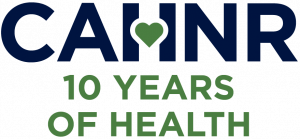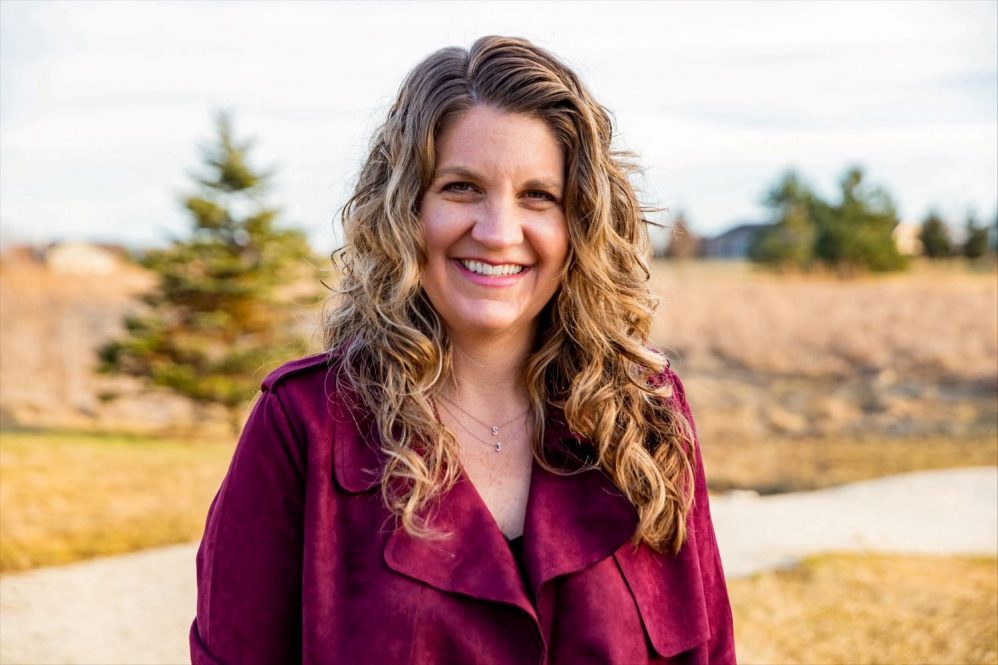With a degree in political science in hand, Kristin Rubin ’04 (CAHNR) thought she was done with school.
But during her senior year, Rubin developed an interest in nutrition and athletic performance.
“I thought this will just have to be something that I think about because I’m finished with school,” Rubin says. “But I realized I wanted to do more than just have it be a personal hobby.”
 Rubin did much more than think about it. In the end, she pursued her master’s and then PhD in nutritional science at UConn.
Rubin did much more than think about it. In the end, she pursued her master’s and then PhD in nutritional science at UConn.
“Once I got to UConn, I had access to so many different fields of study in nutrition, that my interests really expanded,” Rubin says.
Rubin says one of the reasons she chose to come to UConn was that it was the only program where her prospective advisor, Professor Maria-Luz Fernandez, reached out to her directly to discuss her interests.
“I thought, ‘this is someone who cares about me as a student’,” Rubin says. “I knew from that conversation with her I was definitely coming to UConn.”
At UConn, Rubin researched the individual response to dietary cholesterol and became very interested in personalized nutrition.
Rubin’s first job after graduation was at a biotech company in San Francisco. After working there for about a year, Rubin realized she missed the application side of nutritional science.
“I needed that connection and understanding of how advances in science can help people,” Rubin says.
Rubin began working in the nutrition research division of Kraft Foods Group in 2005. She worked on products focused on different dietary goals such as weight loss, cardiovascular disease, and diabetes.
Rubin worked at Kraft for over a decade before moving to Mars Inc. in 2016. When Mars formed a partnership with KIND, the popular snack bar company, in 2018, Rubin led the nutrition and regulatory aspect of their global expansion.
As the global head of nutrition, Rubin oversees nutrition and regulatory affairs for KIND, Nature’s Bakery and TrüFrü within Mars.
Rubin’s role encompasses everything from contributing to the development of product ideas to labeling.
“There’s nutrition throughout that whole process,” Rubin says. “It’s really bringing nutrition insights to inform innovation and recipe development to create the product you find in the grocery store.”
Rubin says with her background in nutritional science, she serves as a source of expertise for others in the company.“Being a nutrition expert in a company like mine, you get the opportunity to support all these other teams that really want to better understand nutrition and you play kind of an educator role,” Rubin says.
Rubin even plays this role at home, talking to her children about nutrition misinformation they see on social media.
“I think it’s so important to understand nutrition and food fundamentals – the science, should be a source of of truth so that we can focus on the things that will help people versus being distracted by the nutrition noise that’s out there,” Rubin says. “Misinformation is a big challenge for the field of nutrition, I think.”
Rubin says one of the most rewarding aspects of the job for her is seeing how nutritional science can be translated into a scalable consumer product.
At KIND, for example, the company helps consumers get recommended food groups like nuts and whole grains in to their diet, by making these the first ingredient in our recipes, Rubin says.
“I love that I’m working in a business where the goal is to bring those foods to the diet, addressing the recommended food gap through the products we offer is important to me as a Nutrition Scientist,” Rubin says.
The U.S. Department of Agriculture (USDA) is set to release new dietary guidelines in 2025, something Rubin is eagerly anticipating as a renewed opportunity to communicate with consumers.
While population-based guidelines like these have been the standard for years, Rubin says she sees a future of personalized nutrition approaches. Given this, Rubin says diversity in the field as well as in research data is critical to ensure everyone’s needs are studied, represented, and met.
“The rate at which technology is advancing really gives us access to understand how we respond to food, and I think it will become more and more customized based on your physiology. We have to be ready for that,” Rubin says.
This work relates to CAHNR’s Strategic Vision area focused on Enhancing Health and Well-Being Locally, Nationally, and Globally.
Follow UConn CAHNR on social media



